- ComboAll the LEs in this themeThe 4 LES for the theme Social Groups and Power Relations | Culture and Citizenship in Quebec | French OnlyStarting from CA$117.00
- Digital PackageLES 1 | Troubled Waters | French OnlyContains a freebie
- ComboAssessmentAssessments | Troubled Waters | French OnlyStarting from CA$5.00
- Digital PackageLES 2 | It's Natural! | French OnlyContains a freebie
- ComboAssessmentAssessments | It's Natural! | French OnlyStarting from CA$5.00
- Digital PackageLES 3 | Journey Through Time and Around the World | French OnlyContains a freebie
- ComboAssessmentAssessments | Journey Through Time and Around the World | French OnlyStarting from CA$5.00
- Digital PackageLES 4 | Reconciliation in Canada: A Model? | French OnlyContains a freebie
- ComboAssessmentAssessments | Reconciliation in Canada: A Model? | French OnlyStarting from CA$5.00
- PaperbackEducational Guide Culture and Quebec Citizenship | Social Groups and Power Relations | Secondary 5Starting from CA$105.00
- PaperbackSAÉ 1 | Troubled Waters | Printed Student Workbook | French OnlyStarting from CA$13.00
- PaperbackSAÉ 2 | It’s Natural! | Printed Student Workbook | French OnlyStarting from CA$13.00
- PaperbackSAÉ 3 | Journey Through Time and the World | Printed Student Workbook | French OnlyStarting from CA$13.00
- PaperbackSAÉ 4 | Reconciliation in Canada: A Model? | Printed Student Workbook | French OnlyStarting from CA$13.00
- Digital PackageWriting | French OnlyStarting from CA$13.95
- Debates for the CCQClassroom Debates | French OnlyContains a freebie
- ComboDialogue DokomaCitizenship Dialogue | French OnlyContains a freebie
Discover the "Social Groups and Power Relations" component of the Quebec Culture and Citizenship program for Secondary 5.
Within the educational program of Quebec Culture and Citizenship, the "Social Groups and Power Relations" component offers Secondary 5 students a unique opportunity to explore the dynamics of equality and inequality, both within Quebec society and globally. This pedagogical module, designed to meet current educational needs, encourages a critical and committed approach to citizenship.
Presented in the form of learning and evaluation situations (LES), this component consists of four independent LES, each offering tasks suitable for both digital and traditional environments. Thanks to a hybrid format, the necessary documents are accessible for download or can be used online, providing maximum flexibility in teaching.
The teacher's guide, included in this program, is a valuable resource for guiding the course. It offers reflection and animation paths that will enrich the educational experience. Each LES is accompanied by a variety of pedagogical tools: podcasts, statistics, interviews, texts, glossaries, bibliographies, and media lists, designed to fully exploit the subject matter.
Dokoma, our exclusive partner, enriches the offer with innovative tools aimed at measuring students' interest and engagement, facilitating the creation of debates in class, managing the flow of ideas, and enabling dynamic interaction through online voting tools, interactive whiteboards, and the Dialogue tool for participating in national activities.
This component is an invitation to dive into the heart of cultural and social realities, through an engaging and contemporary educational journey. It represents a unique opportunity for teachers to energize their courses and actively contribute to the formation of enlightened, critical, and responsible citizens.
We invite you to discover the four LES of this component and to integrate them into your teaching program. Together, let's make education a lever for understanding and transforming our world.
Explore, learn, transform. Welcome to the Quebec Culture and Citizenship program.
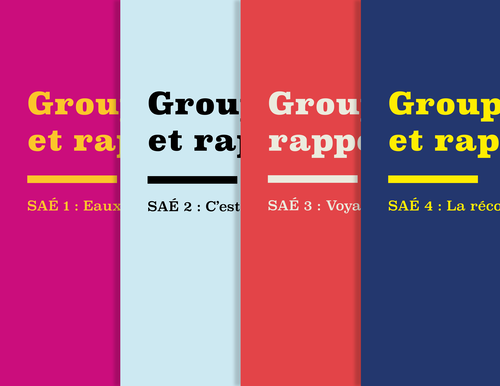
This combo offers four ready-to-use digital LES for the Culture and Citizenship in Quebec program in the second cycle of secondary education: LES 1 | Troubled Waters, LES 2 | It’s Natural!, LES 3 | A Journey Through Time and the World, and LES 4 | Reconciliation in Canada: A Model to Follow?
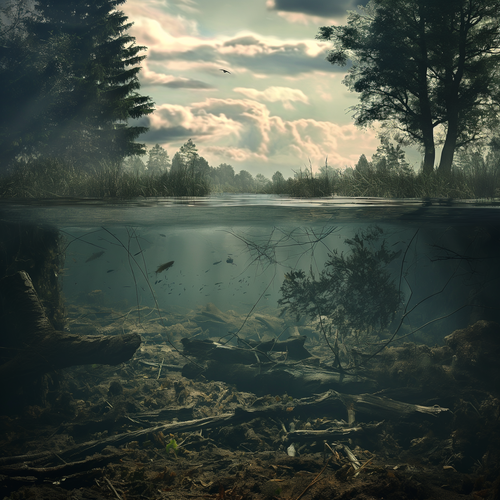
The LES "Troubled Waters" explores environmental and consumption dynamics, focusing on equality, power, and social inequalities.
Through quizzes, research, and discussions, students analyze access to water and the relationship between Hydro-Québec and Indigenous peoples, aiming to raise awareness of environmental inequalities and encourage critical thinking. This journey seeks to sharpen students' social and environmental awareness, preparing them to be responsible citizens.
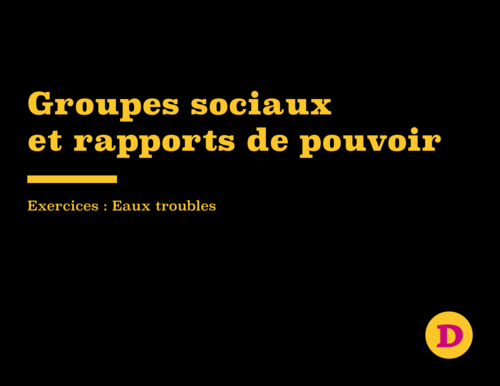
"Troubled Waters" by Dokoma Publishing offers Secondary 5 teachers assessments and questions to explore the Social Groups and Power Relations theme of the CCQ program.
With online exercises providing immediate feedback and modifiable documents, this flexible resource is ideal for those seeking relevant evaluations without using complete learning situations.

"It's Natural!" is a flagship LES from the new CCQ program for Secondary 5, addressing sexual education, sexism, and social movements with an engaging and critical approach.
Students explore inequalities, the representation of sexuality, and struggles for equality through debates, glossary creation, and media analysis, culminating in a simulated parental dialogue. An initiative by Dokoma Editions to encourage reflection and civic action.
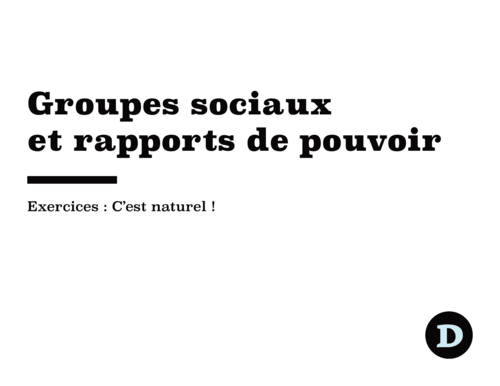
"It's Natural!" by Dokoma Publishing is considered one of the best LES in the Secondary 5 CCQ program. Offering online assessments and modifiable documents, it enables teachers to delve deeper into the theme of Environment and Sustainable Development.
Perfect for those seeking resources aligned with the Ministry of Education's expectations to enrich their teaching.

"Journey Through Time and Around the World" is a key LES from the new QCC program for Secondary 5, inviting students to explore social transformations throughout history.
With activities encompassing debates, analyses of revolutions, and international comparisons, this LES encourages a deep understanding of inequalities and socioeconomic changes. Students become more informed global citizens, capable of critically reflecting on the power relations shaping our societies.
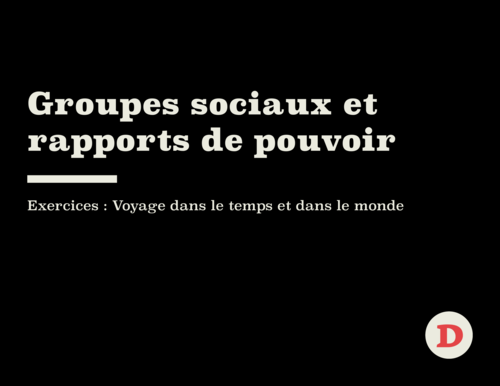
Discover "Time Travel Around the World" by Dokoma Publishing, an intelligent LES for CCQ in Secondary 5.
Offering online assessments and modifiable documents, this innovative resource helps teachers enrich their program with engaging content.
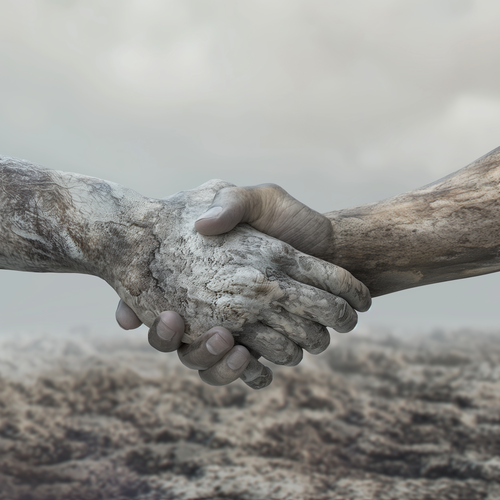
"Reconciliation in Canada: A Model?", from the new QCC program for Secondary 5, immerses students in exploring issues of reconciliation, equality, and social inclusion.
Through historical analyses, interactions with Indigenous communities, and a comparative evaluation of reconciliation policies, this LES fosters critical judgment and a deep understanding of the challenges and opportunities for building an inclusive and reconciled Canada.
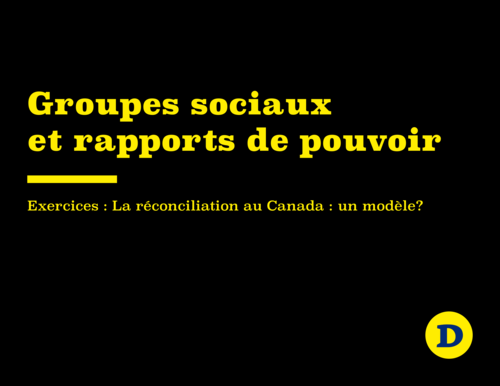
"Reconciliation in Canada: A Model?" by Dokoma Publishing is a must-have LES for Secondary 5 CCQ.
It offers assessments and resources to tackle this complex topic while avoiding common misinformation. With online exercises and modifiable documents, this resource helps teachers address reconciliation with Indigenous peoples in an informed way.
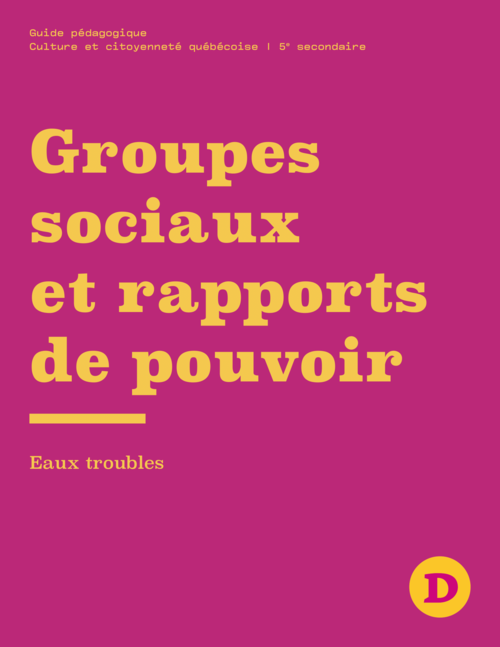
The printed educational guide from Editions Dokoma for the Culture and Quebec Citizenship program focuses on social groups and power relations. It includes four SAEs: Troubled Waters, It's Natural!, Journey Through Time and the World, and Reconciliation in Canada.
This comprehensive guide is an indispensable tool for teachers.
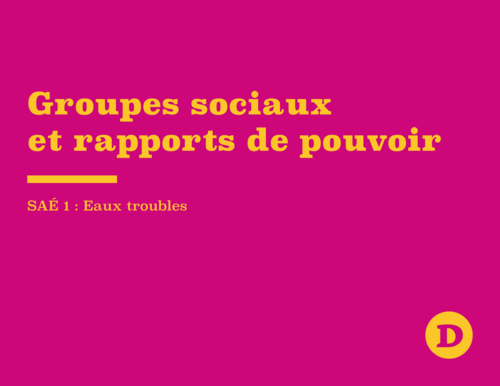
The SAÉ "Troubled Waters" from the "Culture and Quebec Citizenship" program explores environmental and social inequalities. The student workbook, available in a printed version, complements the digital version and allows for recording reflections.
It includes tasks on water in Quebec, blue gold, and relations with Hydro-Québec. Delivery is included in the price.
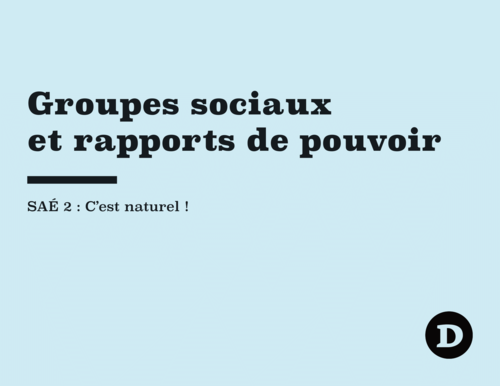
SAÉ "It’s Natural!" from the "Culture and Quebec Citizenship" program explores social inequalities, sexism, and social movements. The student workbook, available in a printed version, complements the digital version and allows for recording reflections. Tasks include debates, creation of a glossary, and media analyses. Delivery included in the price.

The SAÉ "Journey Through Time and the World" from the "Culture and Quebec Citizenship" program explores social groups and power relations across ages and societies. The student workbook, available in a printed version, complements the digital version and allows for recording reflections.
Tasks include debates, analyses, and the creation of a timeline. Delivery included in the price.
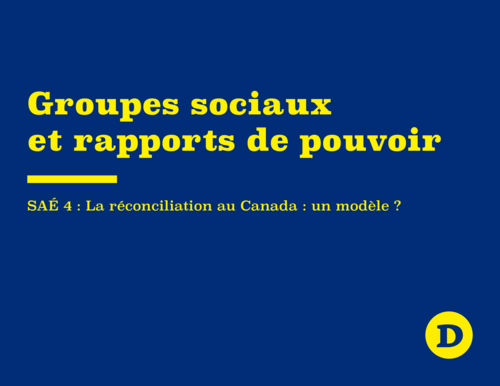
The SAÉ "Reconciliation in Canada: A Model?" from the "Culture and Quebec Citizenship" program explores reconciliation and social inclusion issues in Canada. The student workbook, available in a printed version, complements the digital version and allows for recording reflections. Tasks include debates, analyses, and the creation of a comparative presentation. Delivery included in the price.
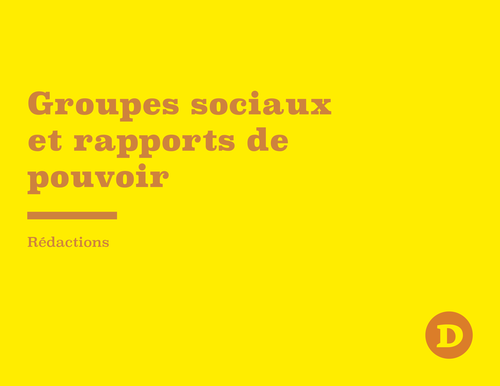
Invite your students to explore the issues addressed in the theme Social Groups and Power Relations of the Culture and Citizenship in Québec program through engaging writing exercises.
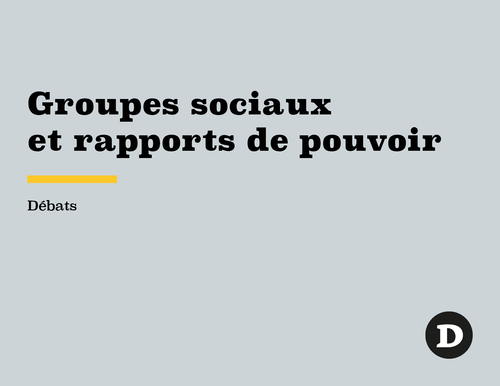
These Dokoma debates foster critical thinking by addressing free water, gender equality, the lives of Quebecers in the past, and reconciliation in Canada.
Students learn to structure their ideas, listen to diverse perspectives, and collaborate. A tool that sparks curiosity and encourages active participation.
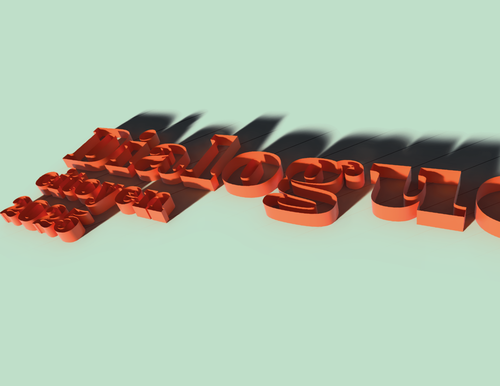
This groundbreaking Dialogue unites all Quebec high school students to examine citizenship and envision the future. Les Éditions Dokoma provides a free thematic package (comics, films, debates, survey) that encourages expression and critical thinking. A sociologist will analyze the survey responses, followed by a new project proposal for participating classes. This approach aims to strengthen understanding of Quebec citizenship through active involvement. It’s a unique opportunity to engage young people in a collective conversation, promoting thoughtful reflection and insight into their role as citizens.